|
Your search criteria found 114 images Mission |
| My List |
Addition Date |
Target
|
Mission | Instrument | Size |

|
2002-12-21 |
Galaxy Evolution Explorer (GALEX) |
2907x3614x3 | ||

|
|||||

|
2003-03-19 |
Galaxy Evolution Explorer (GALEX) |
GALEX Telescope |
3000x1968x3 | |
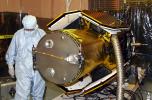
|
|||||

|
2003-05-28 |
Galaxy Evolution Explorer (GALEX) |
GALEX Telescope |
534x528x3 | |
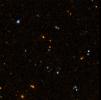
|
|||||

|
2003-05-28 |
Galaxy Evolution Explorer (GALEX) |
GALEX Telescope |
1450x1550x3 | |

|
|||||

|
2003-05-28 |
Galaxy Evolution Explorer (GALEX) |
GALEX Telescope |
1450x1555x3 | |

|
|||||

|
2003-05-28 |
Galaxy Evolution Explorer (GALEX) |
GALEX Telescope |
534x528x3 | |
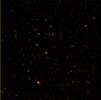
|
|||||

|
2003-05-28 |
Galaxy Evolution Explorer (GALEX) |
GALEX Telescope |
2112x1533x3 | |
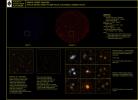
|
|||||

|
2003-07-25 |
Galaxy Evolution Explorer (GALEX) |
GALEX Telescope |
989x1010x3 | |

|
|||||

|
2003-07-25 |
Galaxy Evolution Explorer (GALEX) |
GALEX Telescope |
1600x1496x3 | |
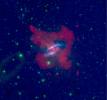
|
|||||

|
2003-07-25 |
Galaxy Evolution Explorer (GALEX) |
GALEX Telescope |
795x735x3 | |
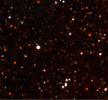
|
|||||

|
2003-07-25 |
Galaxy Evolution Explorer (GALEX) |
GALEX Telescope |
796x733x3 | |
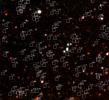
|
|||||

|
2003-07-25 |
Galaxy Evolution Explorer (GALEX) |
GALEX Telescope |
770x644x3 | |
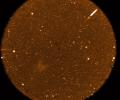
|
|||||

|
2003-07-25 |
Galaxy Evolution Explorer (GALEX) |
GALEX Telescope |
996x1003x3 | |

|
|||||

|
2003-07-25 |
Galaxy Evolution Explorer (GALEX) |
GALEX Telescope |
1008x992x3 | |
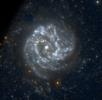
|
|||||

|
2003-07-25 |
Galaxy Evolution Explorer (GALEX) |
GALEX Telescope |
1771x1401x3 | |
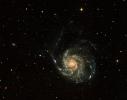
|
|||||

|
2003-07-25 |
Galaxy Evolution Explorer (GALEX) |
GALEX Telescope |
1024x804x1 | |
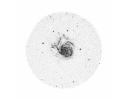
|
|||||

|
2003-07-25 |
Galaxy Evolution Explorer (GALEX) |
GALEX Telescope |
991x1008x3 | |

|
|||||

|
2003-07-25 |
Galaxy Evolution Explorer (GALEX) |
GALEX Telescope |
1000x1000x3 | |
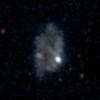
|
|||||

|
2003-07-25 |
Galaxy Evolution Explorer (GALEX) |
GALEX Telescope |
1034x965x3 | |
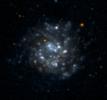
|
|||||

|
2003-07-25 |
Galaxy Evolution Explorer (GALEX) |
GALEX Telescope |
1017x982x3 | |
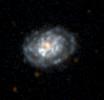
|
|||||

|
2003-12-10 |
Galaxy Evolution Explorer (GALEX) |
GALEX Telescope |
6200x6200x3 | |
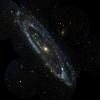
|
|||||

|
2003-12-10 |
Galaxy Evolution Explorer (GALEX) |
GALEX Telescope |
1501x1501x3 | |
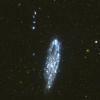
|
|||||

|
2003-12-10 |
Galaxy Evolution Explorer (GALEX) |
GALEX Telescope |
1755x790x3 | |
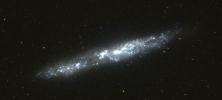
|
|||||

|
2003-12-10 |
Galaxy Evolution Explorer (GALEX) |
GALEX Telescope |
1500x1500x3 | |
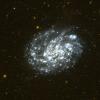
|
|||||

|
2003-12-10 |
Galaxy Evolution Explorer (GALEX) |
GALEX Telescope |
3840x3840x3 | |
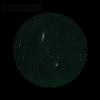
|
|||||

|
2003-12-11 |
Galaxy Evolution Explorer (GALEX) |
GALEX Telescope |
960x960x3 | |
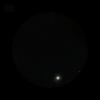
|
|||||

|
2004-05-24 |
Galaxy Evolution Explorer (GALEX) |
GALEX Telescope |
3840x3840x3 | |
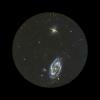
|
|||||

|
2004-12-21 |
Galaxy Evolution Explorer (GALEX) |
GALEX Telescope |
1793x1194x3 | |
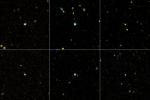
|
|||||

|
2004-12-22 |
Galaxy Evolution Explorer (GALEX) |
GALEX Telescope |
587x473x3 | |
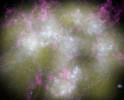
|
|||||

|
2004-12-21 |
Galaxy Evolution Explorer (GALEX) |
GALEX Telescope |
2496x1386x3 | |
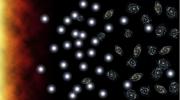
|
|||||

|
2005-05-31 |
Galaxy Evolution Explorer (GALEX) |
GALEX Telescope |
2154x2154x3 | |
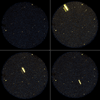
|
|||||

|
2005-05-31 |
Galaxy Evolution Explorer (GALEX) |
GALEX Telescope |
2154x2154x3 | |
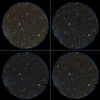
|
|||||

|
2006-01-09 |
Galaxy Evolution Explorer (GALEX) |
GALEX Telescope |
2264x2260x3 | |
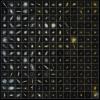
|
|||||

|
2006-07-28 |
Galaxy Evolution Explorer (GALEX) |
GALEX Telescope |
2574x858x3 | |
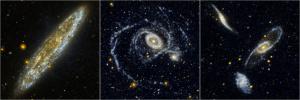
|
|||||

|
2006-08-23 |
Galaxy Evolution Explorer (GALEX) |
3000x2400x3 | ||
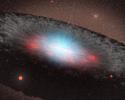
|
|||||

|
2006-08-23 |
Galaxy Evolution Explorer (GALEX) |
3000x2400x3 | ||
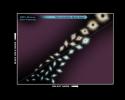
|
|||||

|
2006-09-28 |
Galaxy Evolution Explorer (GALEX) Spitzer Space Telescope |
MIPS Ultraviolet/Visible Camera |
7430x2410x3 | |

|
|||||

|
2006-12-05 |
Galaxy Evolution Explorer (GALEX) |
3000x2000x3 | ||
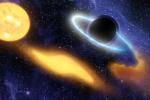
|
|||||

|
2007-01-16 |
Galaxy Evolution Explorer (GALEX) Spitzer Space Telescope |
IRAC |
975x700x3 | |
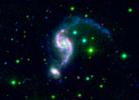
|
|||||

|
2007-05-01 |
Galaxy Evolution Explorer (GALEX) |
GALEX Telescope |
2250x2550x3 | |

|
|||||

|
2007-11-14 |
Galaxy Evolution Explorer (GALEX) |
Ultraviolet/Visible Camera |
1333x1063x3 | |
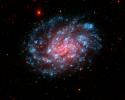
|
|||||

|
2007-11-14 |
Galaxy Evolution Explorer (GALEX) |
Ultraviolet/Visible Camera |
1012x1012x3 | |
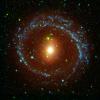
|
|||||

|
2007-11-14 |
Galaxy Evolution Explorer (GALEX) |
Ultraviolet/Visible Camera |
1122x1122x3 | |
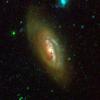
|
|||||

|
2007-11-14 |
Galaxy Evolution Explorer (GALEX) |
Ultraviolet/Visible Camera |
1200x1200x3 | |
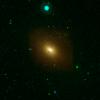
|
|||||

|
2008-04-28 |
Galaxy Evolution Explorer (GALEX) |
3840x3840x3 | ||
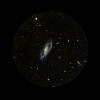
|
|||||

|
2008-10-31 |
Galaxy Evolution Explorer (GALEX) |
Ultraviolet/Visible Camera |
5400x2700x3 | |
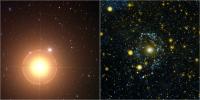
|
|||||

|
2009-02-18 |
Galaxy Evolution Explorer (GALEX) |
Digitized Sky Survey |
2766x1977x3 | |
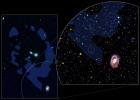
|
|||||

|
2009-08-19 |
Galaxy Evolution Explorer (GALEX) |
3000x1800x3 | ||
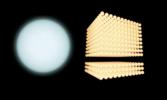
|
|||||

|
2009-08-19 |
Galaxy Evolution Explorer (GALEX) |
2288x1144x3 | ||
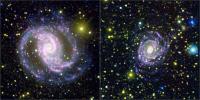
|
|||||

|
2010-06-17 |
Galaxy Evolution Explorer (GALEX) |
Ultraviolet/Visible Camera |
3790x1890x3 | |
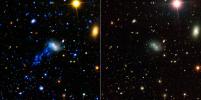
|
|||||

|
2010-08-11 |
Galaxy Evolution Explorer (GALEX) Hubble Space Telescope |
Ultraviolet/Visible Camera |
2400x1600x3 | |
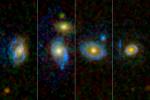
|
|||||

|
2011-04-08 |
Galaxy Evolution Explorer (GALEX) |
3000x2000x3 | ||
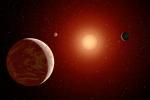
|
|||||

|
2011-04-21 |
Galaxy Evolution Explorer (GALEX) |
Ultraviolet/Visible Camera |
2004x1004x3 | |
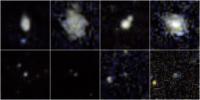
|
|||||

|
2011-05-19 |
Galaxy Evolution Explorer (GALEX) |
4096x3072x3 | ||
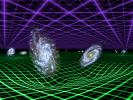
|
|||||

|
2011-05-19 |
Galaxy Evolution Explorer (GALEX) |
4266x2400x3 | ||

|
|||||

|
2011-05-25 |
Galaxy Evolution Explorer (GALEX) Spitzer Space Telescope |
IRAC Ultraviolet/Visible Camera |
2853x1903x3 | |
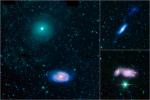
|
|||||

|
2012-03-22 |
Galaxy Evolution Explorer (GALEX) |
Ultraviolet/Visible Camera |
6000x6000x3 | |
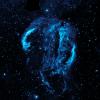
|
|||||

|
2012-04-03 |
Galaxy Evolution Explorer (GALEX) Spitzer Space Telescope |
IRAC Ultraviolet/Visible Camera |
1130x1130x3 | |
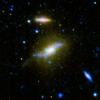
|
|||||

|
2012-05-02 |
Galaxy Evolution Explorer (GALEX) |
1000x624x3 | ||
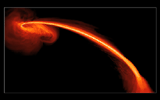
|
|||||

|
2012-05-02 |
Galaxy Evolution Explorer (GALEX) |
900x950x3 | ||

|
|||||

|
2007-11-14 |
Galaxy Evolution Explorer (GALEX) |
3000x2400x3 | ||
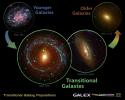
|
|||||

|
2012-10-03 |
Galaxy Evolution Explorer (GALEX) Spitzer Space Telescope |
IRAC Ultraviolet/Visible Camera |
6019x6019x3 | |
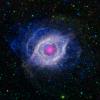
|
|||||

|
2013-01-10 |
ESO Very Large Telescope Galaxy Evolution Explorer (GALEX) Spitzer Space Telescope |
5000x2812x3 | ||
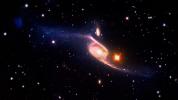
|
|||||

|
2013-01-10 |
Galaxy Evolution Explorer (GALEX) |
2500x1380x3 | ||
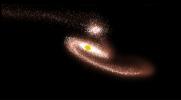
|
|||||

|
2013-06-28 |
Galaxy Evolution Explorer (GALEX) |
GALEX Telescope |
1500x1500x3 | |
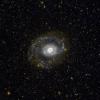
|
|||||

|
2013-06-28 |
Galaxy Evolution Explorer (GALEX) |
GALEX Telescope |
1650x1650x3 | |
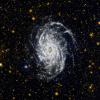
|
|||||

|
2013-06-28 |
Galaxy Evolution Explorer (GALEX) |
GALEX Telescope |
1500x1500x3 | |
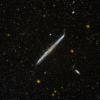
|
|||||

|
2013-10-31 |
Galaxy Evolution Explorer (GALEX) Wide-field Infrared Survey Explorer (WISE) |
GALEX Telescope WISE Telescope |
1302x818x3 | |
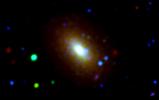
|
|||||

|
2015-03-26 |
Galaxy Evolution Explorer (GALEX) |
1600x900x3 | ||
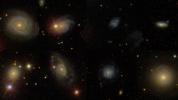
|
|||||

|
2016-01-05 |
Galaxy Evolution Explorer (GALEX) NuSTAR |
GALEX Telescope NuSTAR |
6289x3538x3 | |

|
|||||

|
2016-07-11 |
Galaxy Evolution Explorer (GALEX) |
SDSS Very Large Array (VLA) |
3858x2170x3 | |
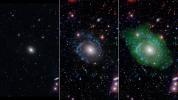
|
|||||

|
2017-03-23 |
Galaxy Evolution Explorer (GALEX) NuSTAR |
GALEX Telescope NuSTAR |
2048x1152x3 | |
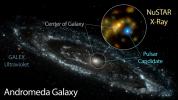
|
|||||

|
2017-06-06 |
Galaxy Evolution Explorer (GALEX) |
2200x1700x3 | ||
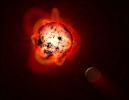
|
|||||

|
2020-11-18 |
Galaxy Evolution Explorer (GALEX) |
4791x2695x3 | ||
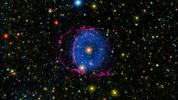
|
|||||

|
2020-11-18 |
Galaxy Evolution Explorer (GALEX) |
1920x1080x3 | ||
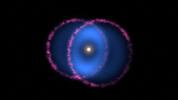
|
|||||

|
2006-01-11 | Cartwheel Galaxy |
Galaxy Evolution Explorer (GALEX) Hubble Space Telescope Spitzer Space Telescope |
Chandra X-ray Telescope GALEX Telescope Infrared Array Camera (IRAC) Visible Light |
1500x1500x3 |
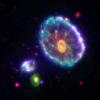
|
|||||

|
2012-05-16 | CW Leo |
Galaxy Evolution Explorer (GALEX) |
Ultraviolet/Visible Camera |
8000x5000x3 |
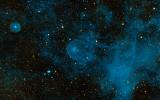
|
|||||

|
2005-05-31 | GJ 3685A |
Galaxy Evolution Explorer (GALEX) |
GALEX Telescope |
1280x960x3 |
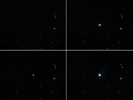
|
|||||

|
2005-05-05 | Helix Nebula |
Galaxy Evolution Explorer (GALEX) |
GALEX Telescope |
2448x1880x3 |
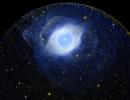
|
|||||

|
2012-05-16 | Helix Nebula |
Galaxy Evolution Explorer (GALEX) |
Ultraviolet/Visible Camera |
2920x2920x3 |
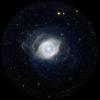
|
|||||

|
2005-05-05 | IC 1613 |
Galaxy Evolution Explorer (GALEX) |
GALEX Telescope |
2032x1016x3 |
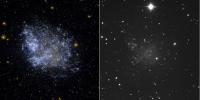
|
|||||

|
2012-05-16 | M31 |
Galaxy Evolution Explorer (GALEX) |
Ultraviolet/Visible Camera |
9400x7000x3 |
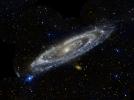
|
|||||

|
2005-10-13 | M33 |
Galaxy Evolution Explorer (GALEX) |
GALEX Telescope |
2904x2904x3 |
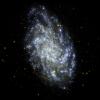
|
|||||

|
2009-04-28 | M33 |
Galaxy Evolution Explorer (GALEX) Spitzer Space Telescope |
Ultraviolet/Visible Camera |
2228x3462x3 |

|
|||||

|
2009-04-28 | M33 |
Galaxy Evolution Explorer (GALEX) Spitzer Space Telescope |
Ultraviolet/Visible Camera |
2228x3462x3 |

|
|||||

|
2009-04-28 | M33 |
Galaxy Evolution Explorer (GALEX) Spitzer Space Telescope |
Ultraviolet/Visible Camera |
4402x4402x3 |
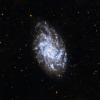
|
|||||

|
2007-12-13 | M51 |
Galaxy Evolution Explorer (GALEX) Spitzer Space Telescope |
IRAC Ultraviolet/Visible Camera |
1978x2850x3 |

|
|||||

|
2005-05-05 | M83 |
Galaxy Evolution Explorer (GALEX) |
GALEX Telescope |
1245x1245x3 |
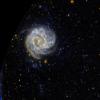
|
|||||

|
2007-06-01 | Messier 81 |
Galaxy Evolution Explorer (GALEX) Hubble Space Telescope Spitzer Space Telescope |
GALEX Telescope Infrared Array Camera (IRAC) Visible Light |
3180x2456x3 |
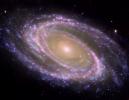
|
|||||

|
2008-04-16 | Messier 83 |
Galaxy Evolution Explorer (GALEX) |
GALEX Telescope Very Large Array (VLA) |
2852x2852x3 |
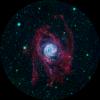
|
|||||

|
2008-04-16 | Messier 83 |
Galaxy Evolution Explorer (GALEX) |
GALEX Telescope |
2852x2852x3 |
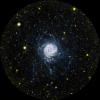
|
|||||

|
2007-08-15 | Mira |
Galaxy Evolution Explorer (GALEX) |
Ultraviolet/Visible Camera |
6000x1500x3 |

|
|||||

|
2007-08-15 | Mira |
Galaxy Evolution Explorer (GALEX) |
Ultraviolet/Visible Camera |
1569x800x3 |
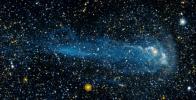
|
|||||

|
2007-08-15 | Mira |
Galaxy Evolution Explorer (GALEX) |
Ultraviolet/Visible Camera |
717x478x3 |
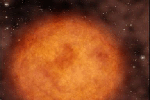
|
|||||

|
2007-08-15 | Mira |
Galaxy Evolution Explorer (GALEX) |
Ultraviolet/Visible Camera |
1569x1600x3 |

|
|||||

|
2005-05-05 | NGC 1291 |
Galaxy Evolution Explorer (GALEX) |
GALEX Telescope |
1412x706x3 |
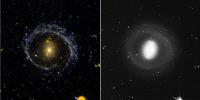
|
|||||

|
2005-05-05 | NGC 1365 |
Galaxy Evolution Explorer (GALEX) |
GALEX Telescope |
664x664x3 |
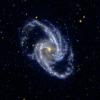
|
|||||

|
2005-05-05 | NGC 1851 |
Galaxy Evolution Explorer (GALEX) |
GALEX Telescope |
1008x1008x3 |
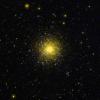
|
|||||

|
2005-04-11 | NGC 300 |
Galaxy Evolution Explorer (GALEX) |
Ultraviolet/Visible Camera |
1273x967x3 |
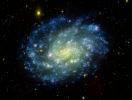
|
|||||

|
2005-05-05 | NGC 3190 |
Galaxy Evolution Explorer (GALEX) |
GALEX Telescope |
936x936x3 |
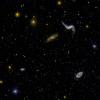
|
|||||
 |
 |

|
|
| 1-100 | 101-200 |
| Currently displaying images: 1 - 100 of 114 |